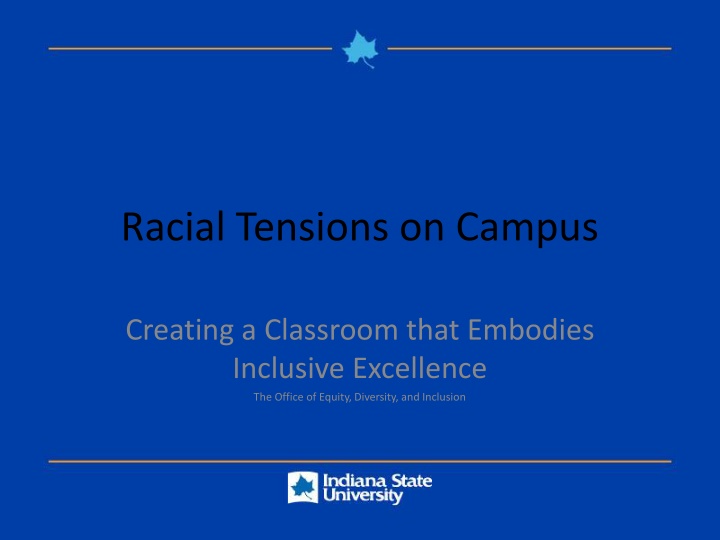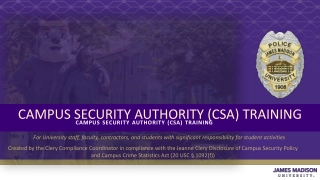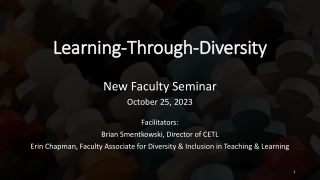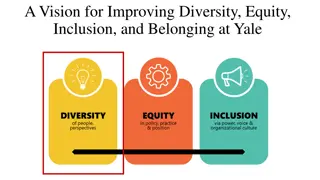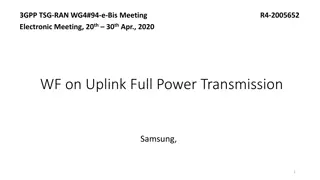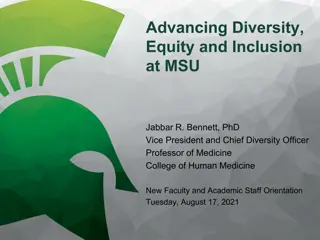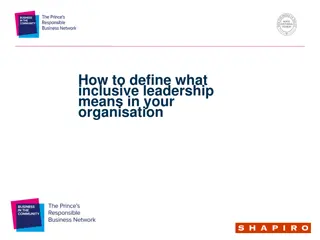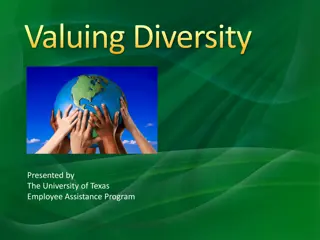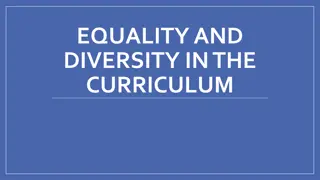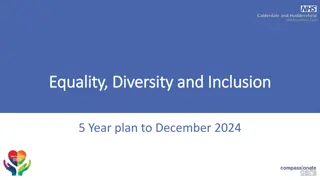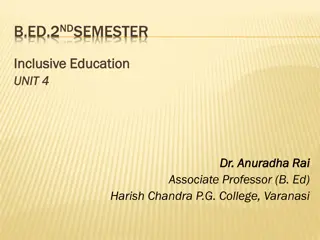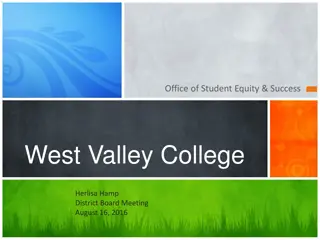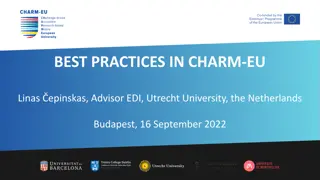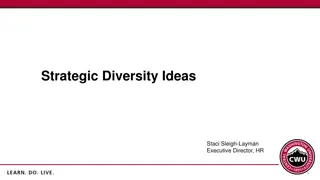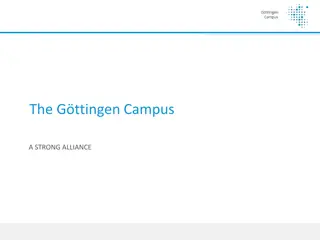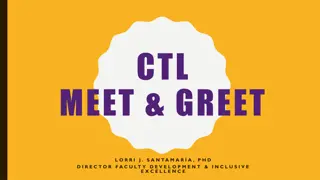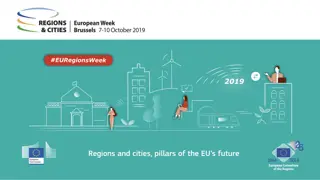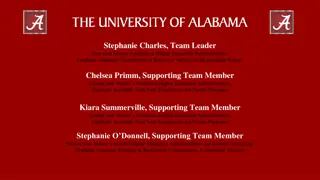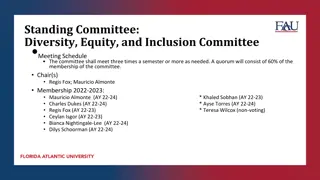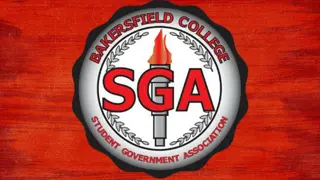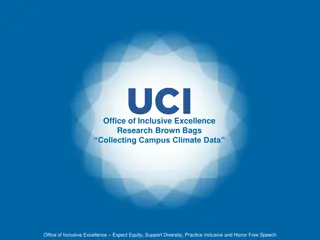Fostering Inclusive Excellence in Campus Diversity
This content delves into addressing racial tensions on campus and creating inclusive environments in educational settings. It highlights issues such as political climate, lack of proactive communication, and the importance of a sense of belonging in student success. Various frameworks and models are discussed, emphasizing the significance of cultural identity, relational communication, and inclusive excellence in educational institutions.
Download Presentation

Please find below an Image/Link to download the presentation.
The content on the website is provided AS IS for your information and personal use only. It may not be sold, licensed, or shared on other websites without obtaining consent from the author.If you encounter any issues during the download, it is possible that the publisher has removed the file from their server.
You are allowed to download the files provided on this website for personal or commercial use, subject to the condition that they are used lawfully. All files are the property of their respective owners.
The content on the website is provided AS IS for your information and personal use only. It may not be sold, licensed, or shared on other websites without obtaining consent from the author.
E N D
Presentation Transcript
Racial Tensions on Campus Creating a Classroom that Embodies Inclusive Excellence The Office of Equity, Diversity, and Inclusion
What Are The Issues Political Climate Campus and Community Dynamics Lack of intentional, proactive communication that is educational in nature and solution driven Classroom Civility that is perpetuated by fear Lack of Proactive Vision
Frameworks Sense of Belonging (Maslow, A., 1954) Cultural Identity Theory (Bardhan & Orbe, 2012; Croucher, Sommier, & Rahmani, 2015.)
Sense of Belonging Student Success Lens: Sense of belong for students within the school setting means students need to feel personally accepted, respected, included, and supported by others within the school learning and social environment. (Tinto and Pusser, 2006)
Cultural Identity Theory Relational Communication choices Behaviors Encompasses group identities such as protected classes Regional Identity Ethnolinguistic Identity Political Affiliation
ISU Inclusive Excellence Model Talent Management Inclusive Excellence Campus/Community Climate Engagement Pedagogy
Inclusive Excellence The action of making excellence inclusive requires that we uncover inequities in student success, identify effective educational practices, and build such practices organically for sustained institutional change. (Association of American Colleges & Universities.)
Understanding Privlege PRIVILEGE IS WHEN YOU THINK SOMETHING IS NOT A PROBLEM BEAUSE IT S NOT A PROBLEM TO YOU PERSONALLY.
Understanding Microaggressions Microaggressions are the everyday verbal, nonverbal, and environmental slights, snubs, or insults, whether intentional or unintentional, that communicate hostile, derogatory, or negative messages to targeted persons based solely upon margianalized group membership (from Diversity in the Classroom, UCLA Diversity & Faculty Development, 2014) Microinsults are behaviors, actions, or verbal remarks that convey rudeness, insensitivity, or demean a person s group or social identity or heritage (Sue, DW; Bucceri, J; Lin, Al; Nadal, KL, & Torino, GC, 2007). Microinvalidations are actions that exclude, negate, or nullify the psychological thoughts, feelings, or experiential reality of people who represent different groups (Sue, et.al, 2007.)
Biases vs. Discrimination Bias Prejudices in favor of or against a thing, person or group in comparison to another, usually in a way that is perceived to be unfair. Discrimination The unjust or prejudicial treatment of different categories of people or things
Classroom Civility Climate dynamics of ISU Understanding the Office of Equal Opportunity How to have difficulty conversations in the classroom
THANK YOU QUESTIONS?
